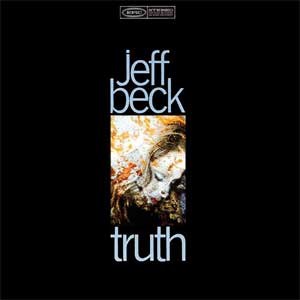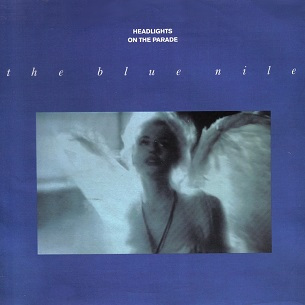
Sir Roderick David Stewart is a British rock and pop singer and songwriter. Known for his distinctive raspy singing voice, Stewart is among the best-selling music artists of all time, having sold more than 120 million records worldwide. His music career began in 1962 when he took up busking with a harmonica. In 1963, he joined the Dimensions as a harmonica player and vocalist. In 1964, Stewart joined Long John Baldry and the All Stars before moving to the Jeff Beck Group in 1967. Joining Faces in 1969, he also launched a solo career, releasing his debut album, An Old Raincoat Won't Ever Let You Down, that year. Stewart's early albums were a fusion of rock, folk music, soul music, and R&B. His third album, 1971's Every Picture Tells a Story, was his breakthrough, topping the charts in the UK, US, Canada and Australia, as did its ballad "Maggie May". His 1972 follow-up album, Never a Dull Moment, also reached number one in the UK and Australia, while going top three in the US and Canada. Its single, "You Wear It Well", topped the chart in the UK and was a moderate hit elsewhere.

Eurythmics were a British pop duo formed in 1980, consisting of Scottish vocalist Annie Lennox and English musician and producer Dave Stewart. They were both previously in the Tourists, a band that broke up in 1980. They released their first studio album, In the Garden, in 1981 to little success, but achieved global acclaim with their second album, Sweet Dreams (1983). The title track became a worldwide hit, reaching number two in the UK Singles Chart, and number one in Canada and the US Billboard Hot 100. Eurythmics went on to release a string of hit singles and albums, including "Love Is a Stranger", "There Must Be an Angel " and "Here Comes the Rain Again", before splitting in 1990.

The Blue Nile were a Scottish band which originated in Glasgow. The group's early music was built heavily on synthesizers and electronic instrumentation and percussion, although later works featured guitar more prominently. Following early championing by established artists such as Rickie Lee Jones and Peter Gabriel, the Blue Nile gained critical acclaim, particularly for their first two albums A Walk Across the Rooftops and Hats, and some commercial success in both the UK and the US, which led to the band working with a wide range of musicians from the late 1980s onwards.

Truth is the debut studio album by English guitarist Jeff Beck, released on 29 July 1968 in the United States on Epic Records and on 4 October 1968 in the United Kingdom on Columbia Records. It introduced the talents of his backing band the Jeff Beck Group, specifically Rod Stewart and Ronnie Wood, to a larger audience, and peaked at number 15 on the Billboard Top LPs chart.

"Da Ya Think I'm Sexy?", also written "Da' Ya' Think I'm Sexy", is a song by British singer Rod Stewart from his ninth studio album, Blondes Have More Fun (1978). It was written by Stewart, Carmine Appice, and Duane Hitchings, though it incorporates the melody from the song "Taj Mahal" by Jorge Ben Jor and the string arrangement from the song "(If You Want My Love) Put Something Down On It" by Bobby Womack.

A Walk Across the Rooftops is the debut album by Scottish band The Blue Nile, released on 30 April 1984 on Linn Records in the UK and on A&M Records in the US. Although the album was released to little fanfare and was not a big hit on its initial release, it slowly accumulated fans and sales through word of mouth as the years passed, and by the time the follow-up Hats was released in 1989, A Walk Across the Rooftops had sold 80,000 copies. It continued to gather praise when reissued in 2012.

Hats is the second studio album by Scottish band the Blue Nile, originally released on 16 October 1989 on Linn Records and A&M Records.

Peace at Last is the third studio album by Scottish band The Blue Nile, released on 10 June 1996 via Warner Bros. Records.

High is the fourth and final studio album by Scottish band The Blue Nile, released on 30 August 2004 on Sanctuary Records. A single, "I Would Never", was released one week prior to the album: a second song, "She Saw the World", was made available as a promotional single, but never released officially.

"Sweet Dreams (Are Made of This)" is a song by British synth-pop duo Eurythmics. It was released as the fourth and final single from their second album of the same name in January 1983. It was their breakthrough hit, establishing the duo worldwide. It reached number two on the UK Singles Chart in March 1983, and number one on the US Billboard Hot 100 six months later; it was their first single released in the US.

"Tonight's the Night (Gonna Be Alright)" is a song written by Rod Stewart, and recorded at Muscle Shoals Sound Studio in Sheffield, Alabama for his 1976 album A Night on the Town. The song, controversial at the time of release, proved to be a massive commercial success and became his second US chart topper on the Billboard Hot 100. It made its debut at number 81 on 2 October 1976 and rose quickly, climbing from number eight to the top of the chart on 13 November 1976, and remained on top for eight consecutive weeks until 8 January 1977. It was the longest stay of any song during 1976, the longest run at the top for a single in the US in over eight years (since the Beatles’ "Hey Jude" in November 1968), and the longest stay at number one for Rod Stewart in his entire recording career, and the final number one of that year. The song also peaked at No. 5 in the UK, No. 1 for six weeks in Canada, No. 3 in Australia and charted well in other parts of the world. It was the number 1 song on both Billboard's 1977 year-end chart and the year-end Canadian singles chart. It became the best-selling single of 1977 in the United States. As of 2018, it is the 19th-most popular song in the history of the chart.

"I Need a Man" is a song recorded by British pop music duo Eurythmics. It was written by band members Annie Lennox and David A. Stewart and produced by Stewart. Taken from their sixth album, Savage (1987), the song was released in May 1988 by RCA Records as the third single in the UK and the first single in the United States.
"I Don't Want to Talk About It" is a song written by American guitarist Danny Whitten. It was first recorded by American rock band Crazy Horse and issued as the final track on side one of their 1971 eponymous album. It was Whitten's signature tune, but gained more fame via its numerous cover versions, especially that by Rod Stewart. Cash Box magazine has described it as "a magnificent ballad outing."

"Downtown Train" is a song by Tom Waits released on his album Rain Dogs in 1985. The promo video for the song was directed by Jean-Baptiste Mondino, it features boxer Jake LaMotta and Neith Hunter.

"Tinseltown in the Rain" is a song by Scottish pop band The Blue Nile. It was released as the second single from their 1984 debut album A Walk Across the Rooftops. The song was written and produced by lead singer Paul Buchanan and bassist Robert Bell. It has been described as an "ode to the city" of Glasgow.

Lost in You is a song by British singer Rod Stewart, released in 1988 as the lead single from his fifteenth studio album, Out of Order. It was written by Stewart (lyrics) and Andy Taylor (music), and produced by Stewart, Taylor and Bernard Edwards. "Lost in You" peaked at No. 12 on the US Billboard Hot 100 and No. 21 on the UK Singles Chart.

"Headlights on the Parade" is a song by Scottish band The Blue Nile, released in 1990 as the second single from their second studio album Hats (1989). The song was written by Paul Buchanan and produced by the band. It reached number 72 in the UK Singles Chart and remained in the top 100 for four weeks.

"Saturday Night" is a song by Scottish band The Blue Nile, released in 1991 as the third and final single from their second studio album Hats (1989). It was written by Paul Buchanan and produced by the band. "Saturday Night" reached number 50 in the UK Singles Chart and remained in the top 100 for three weeks. It remains the band's highest charting single in the UK.

Paul Gerard Buchanan, is a Scottish singer-songwriter and musician, known for critically acclaimed compositions both as a co-founder of the Blue Nile and for his solo material.
"Guilty as Sin?" is a song by the American singer-songwriter Taylor Swift from her eleventh studio album, The Tortured Poets Department (2024). She wrote and produced the song with Jack Antonoff. It is a 1990s-tinged pop rock and soft rock track combining rock, country, and folk styles, accentuated by guitars and live drums. The lyrics see Swift's character sexually fantasizing about a man while being in a relationship.


















